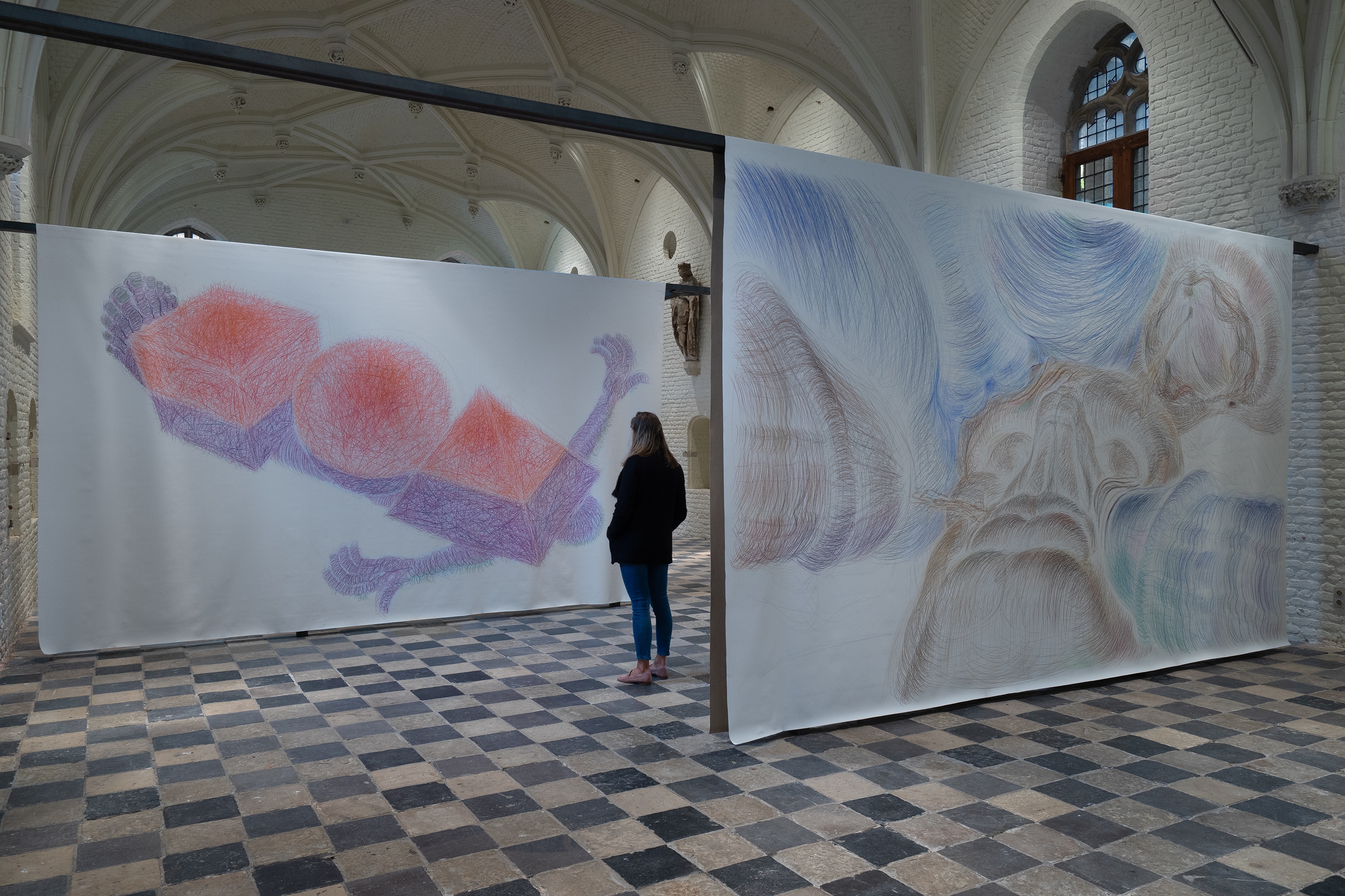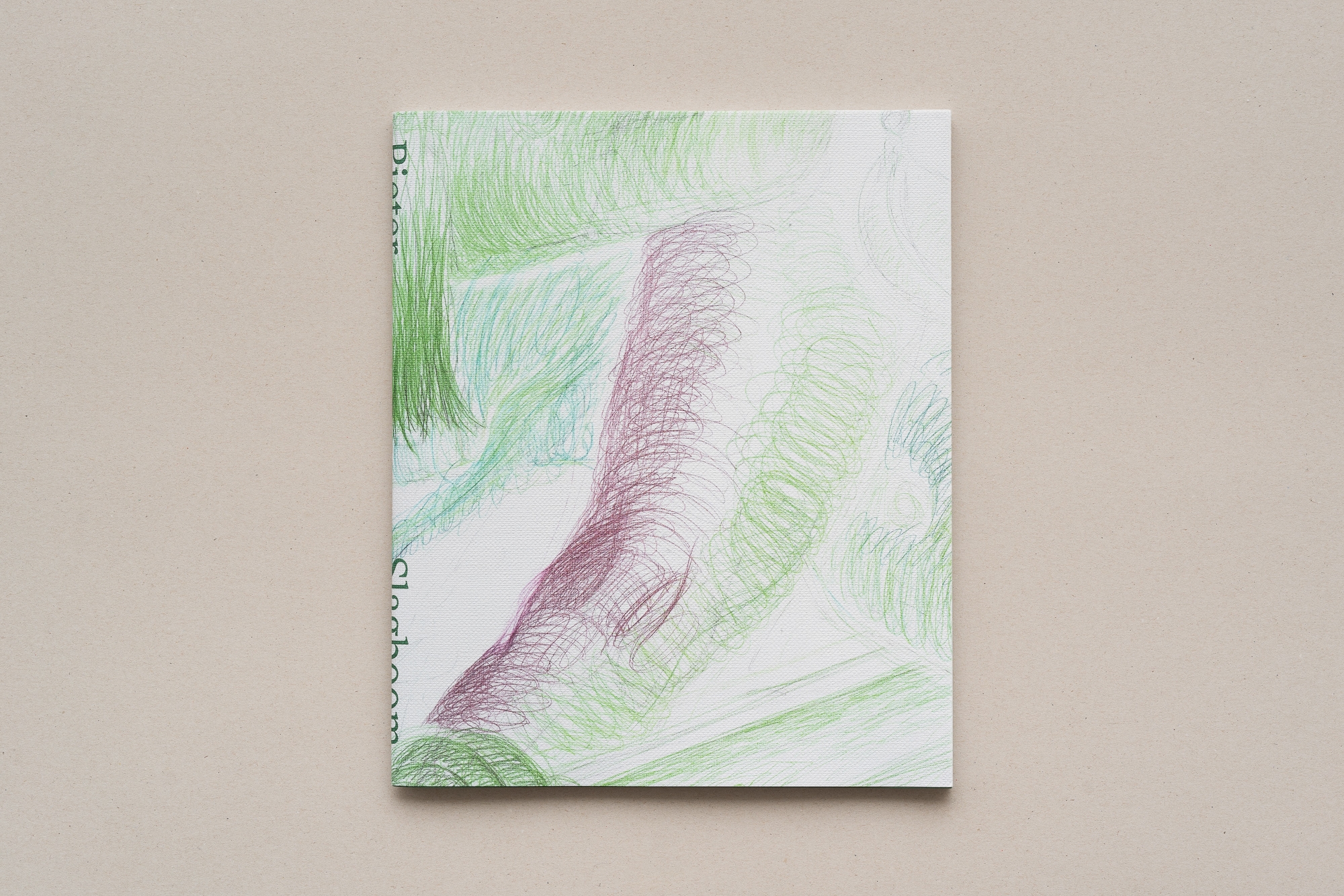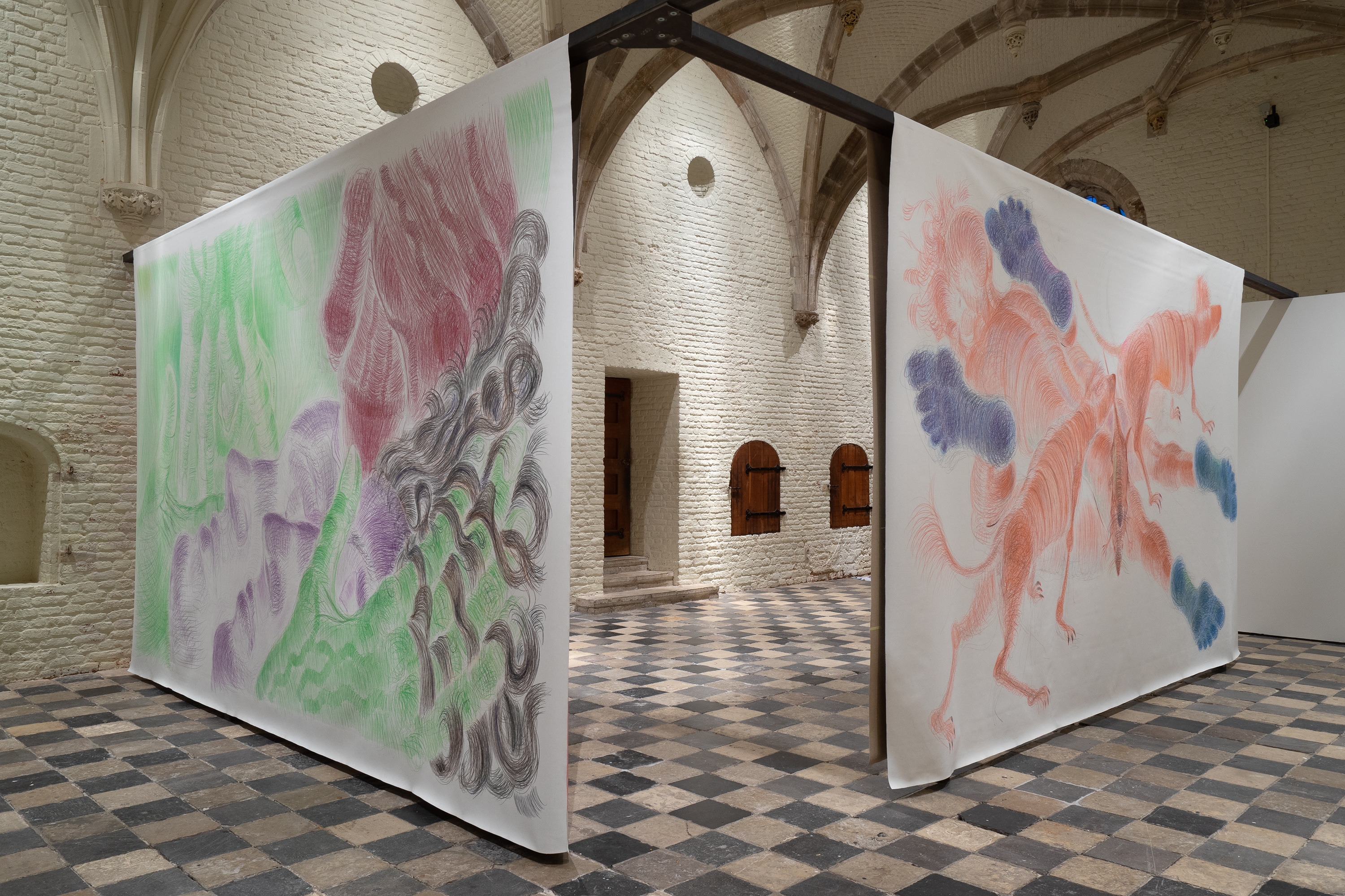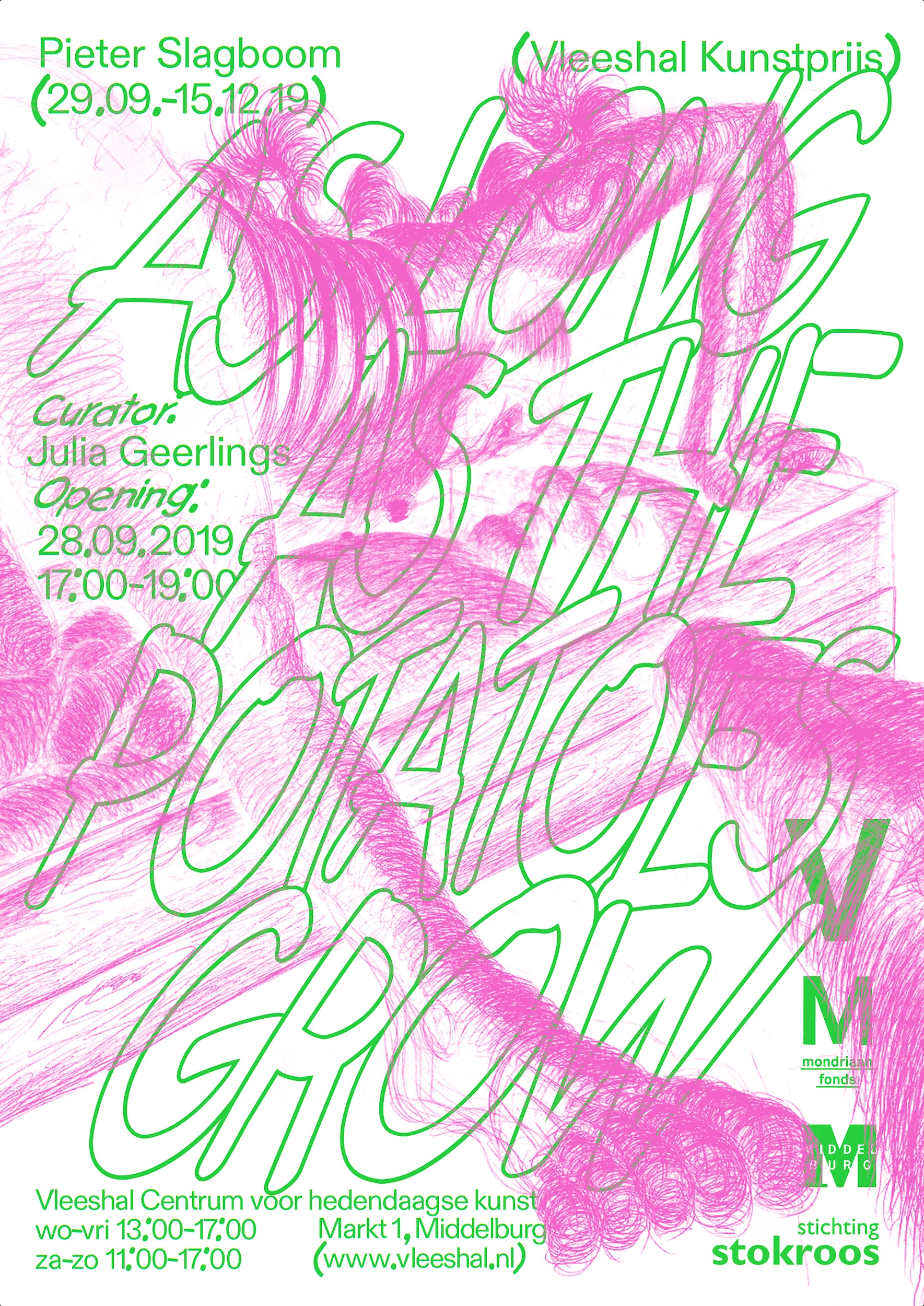As Long As the Potatoes Grow
Pieter Slagboom
Solo exhibition
29 September – 15 December 2019
Vleeshal (Map)
Curator: Julia Geerlings

Once every five years, Vleeshal awards the Vleeshal Art Prize to a promising artist from Middelburg to encourage the development of the artist's work. Vleeshal appoints an external curator to select the winner and curate the accompanying exhibition. In 2018, curator and critic Julia Geerlings has been invited. She chose Pieter Slagboom as the winner of the Vleeshal Art Prize. Slagboom's 2019 exhibition at Vleeshal is the result of an ongoing dialogue between the artist and the curator.
The work of Pieter Slagboom is a poetic analysis of contemporary society. At the same time, his pencil drawings visualize his inner world. They are replete with personal symbols and refer to life’s major themes: birth, death, religion, and sexuality. His idiosyncratic and distinctive style of using curling and shaded pencil lines in a variety of bright colors, portrays confronting and mysterious scenes.
For the exhibition As Long As The Potatoes Grow at Vleeshal, Slagboom developed a brand new body of work, consisting of ten monumental drawings on linen, set in a steel construction designed by the artist. This installation is a key project in Slagboom’s development, marking a coming together of scale and the revelation of his drawings as a spatial process. In recent years, his pencil drawings have been getting bigger and bigger and Vleeshal’s monumental space offers Slagboom the opportunity to create even larger drawings.
Scale and format are not mere formal aspects of his work, but also relate to the content. As Long As the Potatoes Grow led the viewer through a labyrinthian route past ten drawings that were dynamically installed throughout Vleeshal. At one moment, the observer was confronted with a drawing from up-close, and at another moment there would be room to observe a drawing from afar, like a panoramic landscape. The further one advanced through the space, the more distinct both form and content became. Slagboom constructs his images in gentle, bright colors that take on a spatial effect on the linen canvas due to the layered, wavy or curly pencil lines. The softness of the pencil and the brightness of the colors contrast starkly with the explicit scenes, which gradually take shape.
This slow revelation gave the observer time to process the layered structure of the motives: large foot soles, a female figure bent over a male figure in a casket, a clitoris penetrating a penis, a female figure urinating on a face, mating rats, sniffing dogs. The images Slagboom makes are provocative, causing the viewer to instinctively turn away. But whoever keeps looking, also sees a fascinating inner world of absurd rituals and personal symbols to do with death, violence, and sexuality – not readily interpretable.
There are many antitheses in the work of Slagboom, both in terms of form and themes: the olfactory world of dogs versus the visual world of humans, civilization versus instinct, death versus life, organic versus geometric, man versus woman. A recurring theme is the individual in conflict, trapped in between cultural and social norms on the one hand and biologically driven behavior on the other. In particular, the coercion that religion and culture exert on the body and the intellect. The French writer and philosopher Georges Bataille shares Slagboom’s fascination with the interplay between eroticism, violence, death, and faith. “Two things are inevitable,” writes Bataille, “we can’t avoid our mortality and we can’t help transgressing boundaries. Dying and transgressing boundaries are essentially the same thing.”
Publication & Edition
Commission
Series
From time to time Vleeshal invites guest curators to organize exhibitions in the Vleeshal or to develop other projects. By doing so, we aim to welcome new perspectives and contribute to talent development.
Vleeshal is an internationally oriented center for contemporary art, rooted in Zeeland. In Zeeland Focus, Vleeshal highlights regional artists, takes part in and celebrates local contemporary art and culture.
Once every five years, Vleeshal awards the Vleeshal Art Prize to a promising artist from Middelburg. Not only does this artist win a solo exhibition at Vleeshal, but also a close collaboration with a talented, external curator – invited by Vleeshal. The prize supports artists from Middelburg in their artistic development.
This project is supported by the Mondriaan Fonds, the municipality of Middelburg and Stichting Stokroos.




